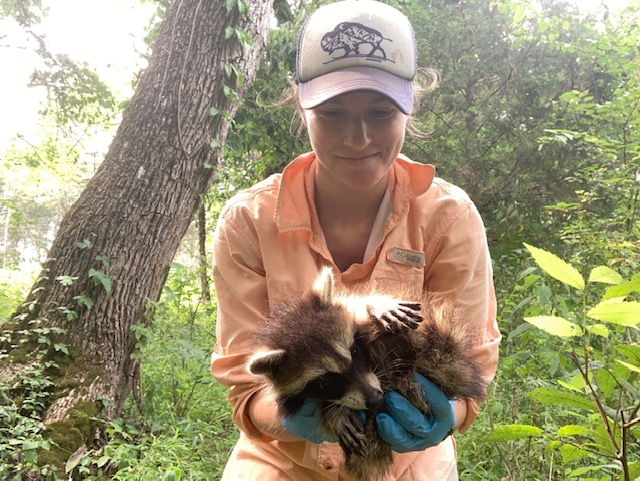
While building a career as a wildlife mammalogist, Rebecca Butler discovered medical entomology. This event inspired her to enroll in the Department of Entomology and Plant Pathology and study under associate professor Rebecca Trout Fryxell. In 2021, Butler was recognized by the University of Tennessee Institute of Agriculture alongside her advisor, professor Karen Vail, and research specialist Jennifer Chandler for their publication, Managing Ticks on School Grounds. In her spare time, Butler enjoys whitewater kayaking and mountain biking.
Q&A with Rebecca Butler
Can you tell me a little bit about yourself?
I began my academic career as a wildlife mammalogist where I researched interactions between hosts, pathogens, and parasites. Studying wildlife disease ecology led me to discover medical entomology. It inspired me to apply for a Ph.D. with Dr. Trout Fryxell in the Department of Entomology and Plant Pathology at the University of Tennessee, Knoxville.
What is your current concentration?
My program concentration within Medical Entomology is Organismal Biology, Ecology, and Systematics.
What academic class has been your favorite and why?
My favorite academic class at the University of Tennessee would probably be epidemiology. This course was my favorite because it was enlightening to learn techniques to model disease outbreaks which public health interventions can be applied to control or prevent disease.
How has your academic training at The University of Tennessee prepared you for a career in the industry?
Academic training at The University of Tennessee prepared me for a career in the industry by allowing me to acquire a multifaceted framework for solving complex problems.
What is your current research question? What are/were your primary obstacles in answering this question?
Currently, my team is working on understanding management regimes, life history strategies, and ecological interaction of the invasive Asian longhorned tick (Haemaphysalis longicornis). Our primary obstacles include detection of this tick species on hosts and in the environment, the publics resistance to researching this tick on their animals and farms, and funding.
Can you tell me a little more about your research?
My research focuses on understanding ecological interactions between tick species, their hosts, and the environment to discover new methods for their management and control.
What do you believe is your biggest academic achievement?
My biggest academic achievement would be my publication record.
Any advice you would like to share with a prospective student?
It is important to maintain a work-life balance, you’ll be better at your job if you give yourself time to reset.
What kind of extracurricular activities do you participate in?
I enjoy participating in the UT Student One Health Coalition.
What are your two favorite hobbies?
In my free time, I enjoy whitewater kayaking and mountain biking.